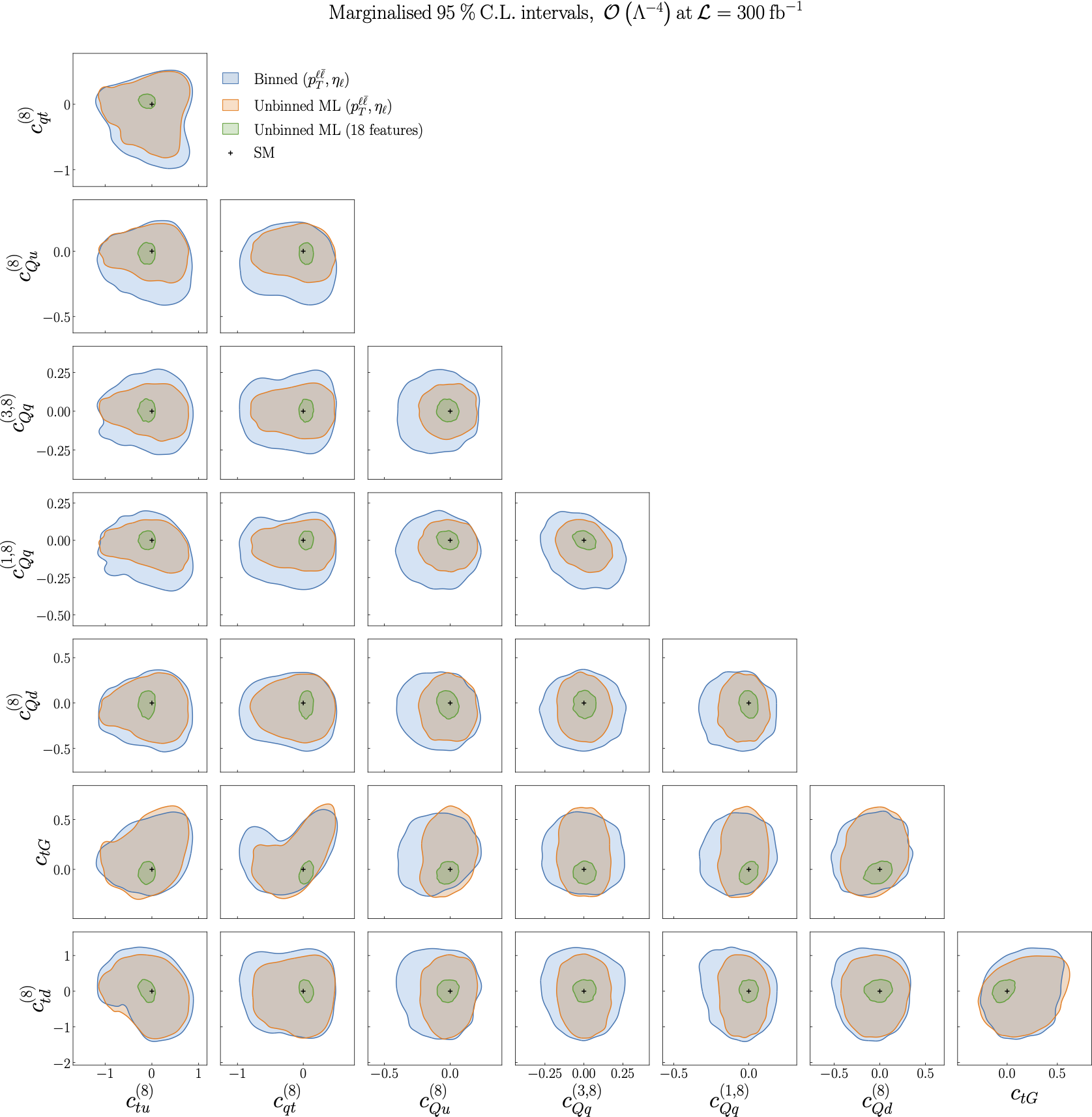ML4EFT
Contents
ML4EFT#
ML4EFT is a general open-source framework for the integration of unbinned multivariate observables into global fits of particle physics data. It makes use of machine learning regression and classification techniques to parameterise high-dimensional likelihood ratios, and can be seamlessly integrated into global analyses of, for example, the Standard Model Effective Field Theory and Parton Distribution Functions.

Fig. 1 Constraints on the SMEFT parameter space obtained using the ML4EFT code, showing a marked improvement over those obtained using a binned analysis. See the text for more details.#
Project Description#
Optimizing theoretical interpretations of particle physics data demands identifying experimental observables with high sensitivity to the model parameters of interest. Such measurements not only lead to more stringent constraints on the model parameters, but also provide quantitative upper bounds indicating the maximum amount of physical information that can be extracted from a given process.
With this motivation, we have developed a machine learning framework which enables the integration of unbinned multivariate observables into global fits of particle physics data: ML4EFT.
ML4EFT is described in the following paper:
Unbinned multivariate observables for global SMEFT analyses from machine learning, Raquel Gomez Ambrosio, Jaco ter Hoeve, Maeve Madigan, Juan Rojo and Veronica Sanz [Gomez Ambrosio et al., 2022]
Here, we provide a proof-of-concept of the ML4EFT framework by constructing unbinned observables from pseudo-data of particle-level \(t\bar{t}\) and \(hZ\) production at the LHC 14 TeV, demonstrating the improved sensitivity that can be obtained relative to binned measurements. Results from this paper are presented in the Results section, including animations not present in the paper. See Ref [Gomez Ambrosio et al., 2022] for more details of the ML4EFT framework, and the Code section for the ML4EFT code documentation.
Team Description#
Raquel Gomez Ambrosio Universita degli Studi di Milano-Bicocca and INFN
Jaco ter Hoeve, VU Amsterdam and Nikhef Theory Group
Maeve Madigan University of Cambridge
Juan Rojo, VU Amsterdam and Nikhef Theory Group
Veronica Sanz Universidad de Valencia-CSIC and University of Sussex
Citation policy#
If you use the ML4EFT code in a scientific publication, please make sure to cite:
Unbinned multivariate observables for global SMEFT analyses from machine learning, Raquel Gomez Ambrosio, Jaco ter Hoeve, Maeve Madigan, Juan Rojo and Veronica Sanz [Gomez Ambrosio et al., 2022]